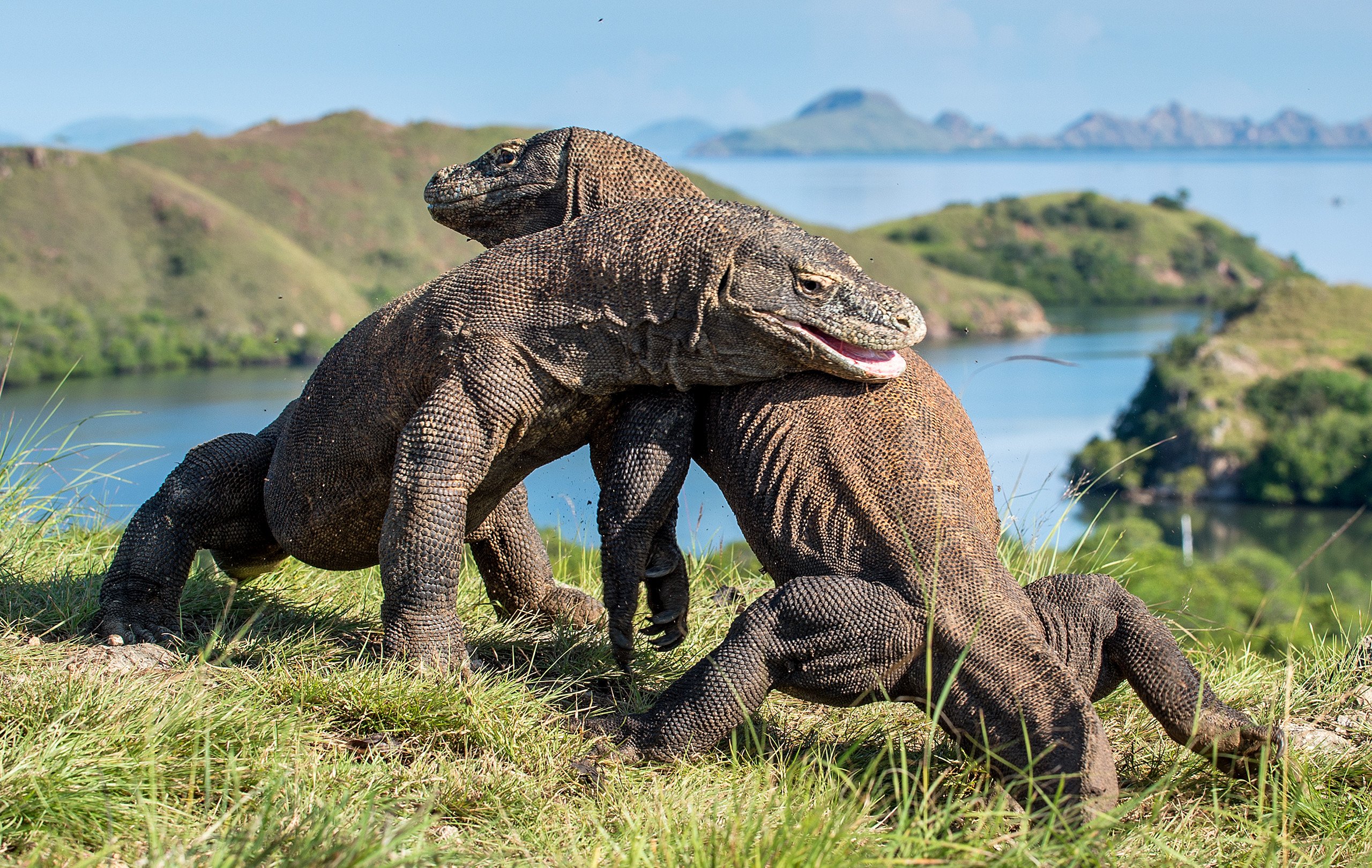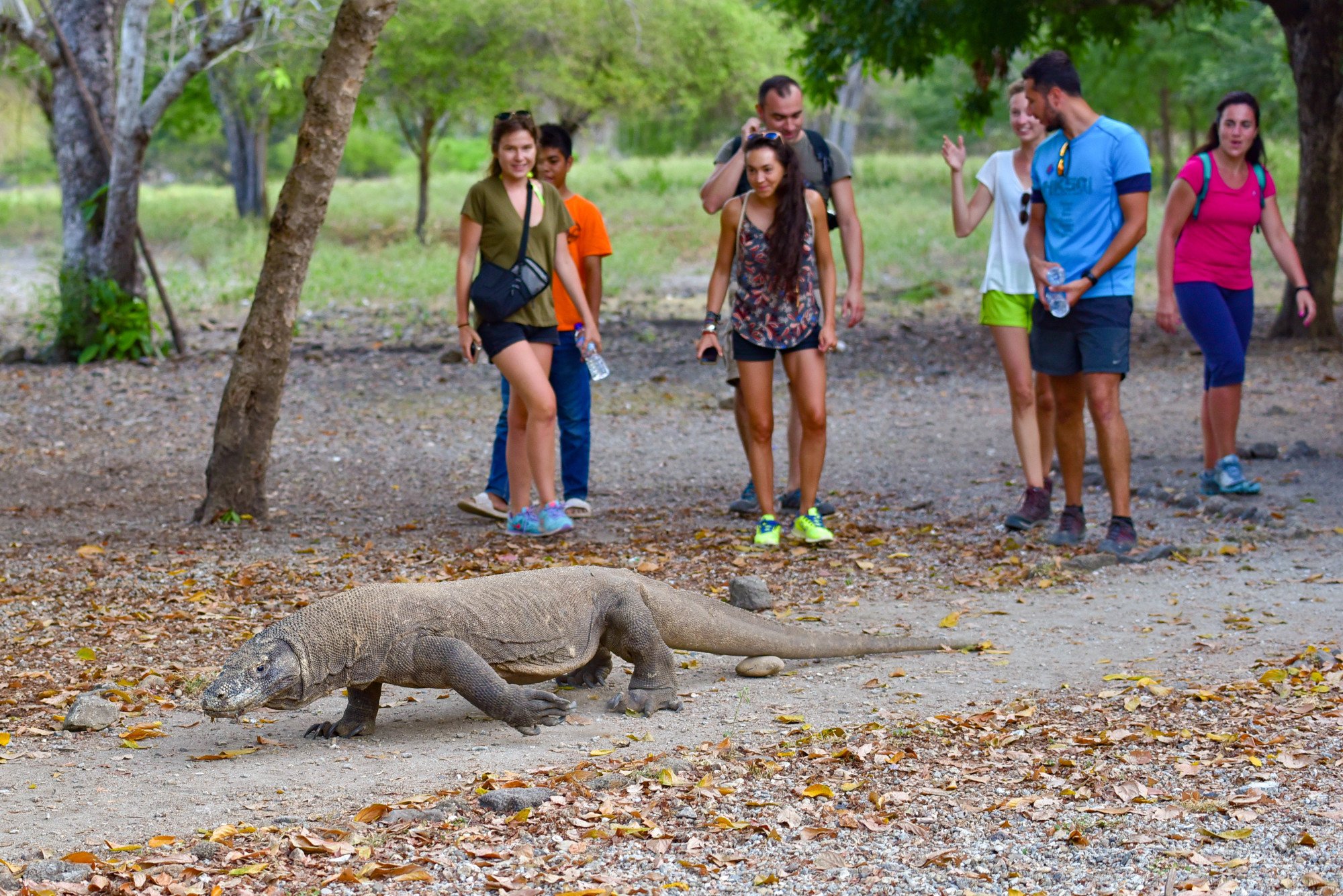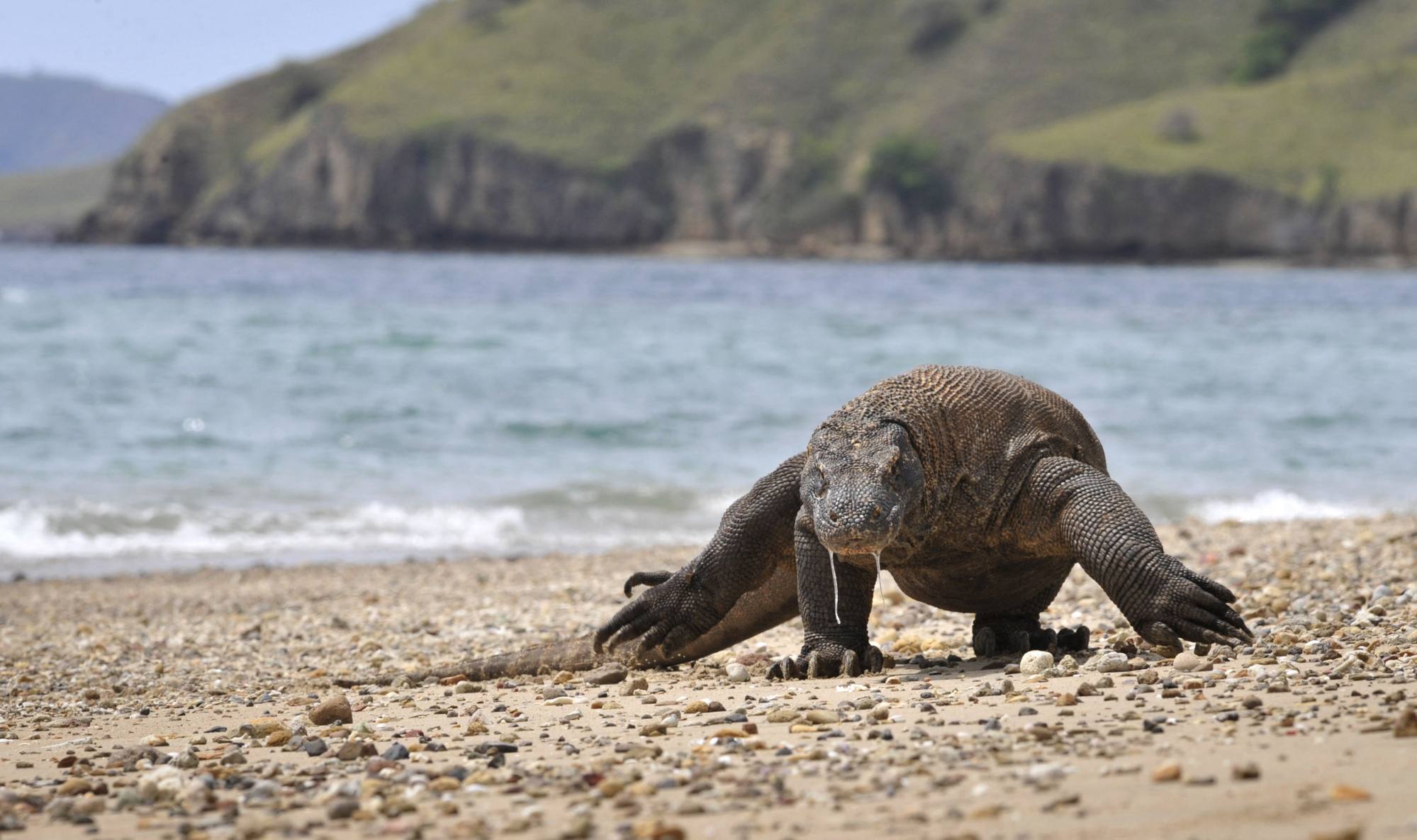Luxury Villas Plan For Indonesia’s Komodo National Park Slammed As ‘tourism Suicide’

A plan to build hundreds of luxury villas on an island in Indonesia’s Komodo National Park has sparked fierce backlash from environmentalists and residents over concerns that it could devastate the fragile ecosystem of the Unesco-listed sanctuary – the only place on Earth where Komodo dragons roam wild.
The project, backed by a government-linked developer, risks undermining years of efforts to support sustainable tourism in one of Southeast Asia’s most iconic ecological zones, according to critics.
The 2,200 sq km (849 square miles) park, visited by more than 330,000 people last year, is famous for its pink-sand beaches, turquoise waters and thriving marine biodiversity. But its star attraction is the endangered Komodo dragon – only around 3,000 remain in the wild.
While the proposed development is located on Padar Island – one of the park’s largest islands, though not home to the dragons – environmentalists say the visual impact and resource strain could have far-reaching consequences. Named “one of the most unique sights in the world” by Time Out in March, Padar’s dramatic hilltop views have become a key draw for tourists.
For years, the Indonesian government has been grappling with the challenge of maintaining a balance between tourism dollars and the park’s delicate ecosystem. In July, the forestry ministry and Komodo Wildlife Ecotourism, the company that owns tourism concessions on Padar Island, held a public consultation with residents in Labuan Bajo, the gateway town to the Komodo National Park, as part of an exercise to assess the environmental impact of the proposed development.
The company owns business permits to build “natural tourism facilities” on more than 274 hectares (677 acres) of land on Padar Island, or almost 20 per cent of the island’s total area of 1,400 hectares. It plans to build 619 buildings, of which 448 are luxury villas, including a “hilltop chateau” equipped with swimming pools, restaurants, gym and spa facilities, according to media reports.

Venan Haryanto, an environmentalist with Indonesian NGO Sun Spirit for Justice and Peace, said that many residents had decided not to attend the public discussion “as a form of resistance”.
“They know that this consultation is only intended to gain public legitimacy [for the company’s plan]. The process is not transparent. Many important stakeholders are not informed,” Venan told This Week in Asia.
More than 5,500 people have signed an online petition created by Flores Civil Society Forum urging President Prabowo Subianto, the forestry ministry and Unesco to “immediately cancel all business concessions in Komodo National Park”.
The petition said: “Turning a Unesco World Heritage site into a luxury resort complex will be seen worldwide as a betrayal of conservation commitments.”
According to Venan, the communities living near the park – such as in Labuan Bajo, Manggarai, and Flores – consider the park “a shared plate of rice”, as their livelihood depends on it.
“When this shared rice plate falls into the hands of a large company, there is a big possibility that the local tourism businesses in this national park will be pushed aside,” he said.
The national park was established in 1980 and declared a World Heritage site in 1991 by Unesco. The Ata Modo, the indigenous people of Komodo National Park, gave up their ancestral land in the 1980s and were subsequently “confined to an enclave of only 17 hectares” within the park, according to Cypri Jehan Paju Dale, a social anthropologist at the University of Wisconsin-Madison.
“This is systemic impoverishment. The Komodo people were made poor by being a landless community. Now, they are marginalised once again, as the benefits of tourism are usurped from them, while the company has access [to tourism revenue] generated by the Ata Modo’s land,” said Cypri, who is from Flores.
In a statement on August 5, the forestry ministry said that Komodo Wildlife Ecotourism would only build on 15.38 hectares of land, or 5.64 per cent of its concessions on Padar Island.
“The Indonesian government will not allow any development before this environmental impact assessment document is approved by the World Heritage Centre and the International Union for Conservation of Nature, as part of its commitment to protecting the outstanding universal value of World Heritage sites,” the ministry said.
The document “was prepared by a cross-disciplinary team of experts and was openly consulted with stakeholders, including local governments, community leaders, NGOs, business actors, and academics in a public consultation forum in Labuan Bajo on July 23”.
Despite the assurance, Venan still viewed the construction plan as “tourism suicide”.
“Even cutting down small trees within the national park is not allowed for conservation reasons, let alone building hundreds of buildings, which will include swimming pools. So how can we say this is ecologically friendly? It doesn’t make sense,” he said.

Cypri said residents were worried that Unesco would take the government’s environmental impact assessment at face value and “give the green light” to the project.
In 2021, Unesco urged Indonesia “to halt all tourism infrastructure projects in and around” Rinca Island, following massive protests against it. Jakarta later claimed the completion of infrastructure development in Rinca in 2022 did not destroy the Komodo dragons’ habitat.
In a document released on July 23, Unesco said that it was concerned that the tourism development plan in the Komodo National Park would have “various potential impacts” and asked Jakarta to implement a sustainable tourism approach there.
Cypri said: “Unesco hasn’t done enough to protect Komodo National Park. Unesco is too soft, because it only requires an environmental impact assessment [from the government]. This shows that Unesco doesn’t understand the problem.
“Unesco needs to consistently listen to the public, not just the Indonesian government’s side of the story, and be more proactive and actively conduct investigations in the Komodo National Park.”
Popular Products
-
 Smart Bluetooth Aroma Diffuser
Smart Bluetooth Aroma Diffuser$389.98$292.87 -
 Enamel Heart Pendant Necklace
Enamel Heart Pendant Necklace$35.99$24.78 -
 Portable Car Jump Starter Booster - 2...
Portable Car Jump Starter Booster - 2...$261.99$182.78 -
 Foldable Car Trunk Multi-Compartment ...
Foldable Car Trunk Multi-Compartment ...$276.99$192.78 -
 Mommy Diaper Backpack with Stroller O...
Mommy Diaper Backpack with Stroller O...$106.99$73.78